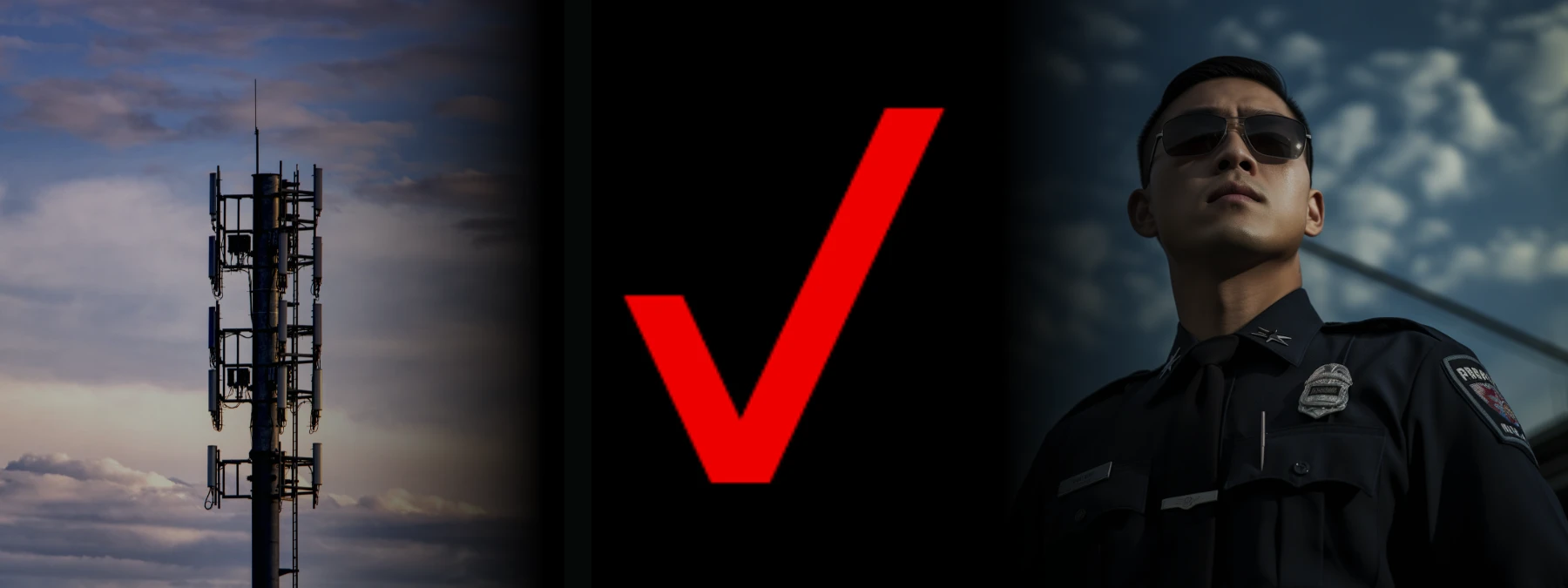
Telecommunication service providers are the driving force behind our mobile phones’ capabilities, offering a range of services such as transmitting voice, data, text, sound, and video. These services are facilitated by a sophisticated mix of wired and wireless technologies, enabling seamless global communication. While the focus is often on the technology within our smartphones, the underlying infrastructure that transmits our voices and data around the world at incredible speeds is equally remarkable. For law enforcement, the potential to collect evidence from these telecommunication providers is equally astounding, opening new avenues for investigations and intelligence gathering. This article focuses specifically on Verizon how their tech works, and writing Verizon search warrants.
Verizon Background
Verizon Wireless is a telecommunications company headquartered in Basking Ridge, New Jersey, USA. It is a subsidiary of Verizon Communications, one of the largest communication companies in the world. Verizon Wireless was formed in 2000 as a result of the merger of Bell Atlantic and GTE. The company provides wireless voice and data services, as well as broadband and other digital services. It operates a 4G LTE network that covers more than 98% of the US population and a 5G Ultra-Wideband network in selected areas. Verizon Wireless offers a range of smartphones and other devices, including tablets, smartwatches, and hotspots, and provides different plans for its customers, including unlimited data, prepaid plans, and family plans.
As of January 2022, Verizon Wireless had over 120 million wireless customers, making it one of the largest wireless providers in the US. The company is known for its reliable network, fast data speeds, and excellent customer service. In addition to its wireless services, Verizon Wireless also offers internet, TV, and phone services for residential and business customers. The company is committed to investing in new technology and expanding its network to provide better services to its customers
Headquartered in Bedminster New Jersey, all search warrants must be addressed to:
Verizon Wireless
180 Washington Valley Road
Bedminster, NJ 07921
Phone: 800-451-5242
Fax: (888) 667-0026
Email: vsat.cct@one.verizon.com
Additionally, Verizon requests that search warrants be served via email, fax, or electronic upload: https://leaportal.verizon.com
Drafting Verizon Search Warrants
Investigating Verizon is similar to other telecommunications networks like AT&T and T-Mobile, however, Verizon has some unique features that investigators should be aware of. Call Data Records (CDRs) are logs that document the details of a telephone call or other telecommunications transactions that passes through the telecom. They include Incoming & outgoing calls (phone numbers included), sent & received SMS & MMS, IMEI & IMSI numbers, service codes that indicate call actions (ie. call forwarded, sent to voicemail, etc.), duration of the call and completed or answer status, cell tower(s) that the handset connected to during the call. (beginning, ending and in between), mobile data usage as bytes uploaded / downloaded, and location data.
Once unique aspect of Verizon’s CDRs is how calls are handled as “sessions” and how sessions can be closed. This can cause confusion when interpreting CDRs and it may appear that a call ended when it actually continued into a new session. For example, if a user is binging Netflix and their data usage extends past six hours, a new session would be created. This causes the first identified cell tower to be recorded again in the records which may or may not be the tower they were actually connected to when the session split.
Verizon Photos & Videos – Synchronoss Technologies
Synchronoss Technologies is the cloud-based storage provider for files stored on the Verizon Cloud. Synchronoss only stores Verizon customer content which is associated to the customers telephone number. This means that any subscriber information, or other customer records would be obtained through Verizon Wireless. If cloud stored photos and videos are important to your case, an additional search warrant to Synchronoss must be completed.
Synchronoss Technologies, Inc. is also located in New Jersey and search warrants must be addressed to:
Attn: Legal Department / Cara Blaszka
200 Crossing Blvd., Floor 8
Bridgewater NJ 08807
Phone: (908) 391-9489
Synchronoss requests that search warrants be served via email: Content-Abuse@synchronoss.com
Verizon Tower Dumps
When conducting a traditional tower dump for an area, Verizon is only able to search for voice calls. Tower dumps will not identify data connection for Verizon handsets. When conducting Timing Advance (TA) tower dumps, Verizon produces records in arcs. Verizon achieves this by measuring the time it takes for a signal to travel from a mobile device to a cell tower. For example, if a signal travels exactly 1500 metes in 0.01 seconds, Verizon will know that the phone is exactly 1500 meters from the tower. Verizon knows what side of the tower the signal was sent and received from and therefore knows the distance on the azimuth. Unfortunately, the phone could be 1500 meters in a 120 degree arc. For a short distance like 1500 meters that may not be a problem, but a 2 mile distance poses a significant problem.
Verizon Internet
Verizon now offers how and business internet connectivity to its customers. Without a landline connection, Verizon internet is basically a 5G cellphone configured as a Wi-Fi router. All the device needs is power which causes an investigative problem. Pursuant to a search warrant, Verizon can say where the bill is being sent, but the internet hotspot can be moved anywhere. Investigators should use caution when dealing with Verizon IP addresses as the address on the bill may not be where the suspect lives.
